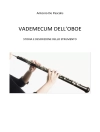The first thorough examination of the most renowned and influential organist in early twentieth-century Germany and of his complex relationship to his country’s tumultuous and shifting sociopolitical landscape.
In the course of a multifaceted career, Karl Straube (1873-1950) rose to positions of immense cultural authority in a German musical world caught in unprecedented artistic and sociopolitical upheaval. Son of a German harmonium-builder and an intellectually inclined English mother, Straube established himself as Germany’s iconic organ virtuoso by the turn of the century. His upbringing in Bismarck’s Berlin encouraged him to develop intensive interests in world history and politics. He quickly became a sought-after teacher, editor, and confidante to composers and intellectuals, whose work he often significantly influenced. As the eleventh successor to J. S. Bach in the cantorate of St. Thomas School, Leipzig, he focused the choir’s mission as curator of Bach’s works and, in the unstable political climate of the interwar years, as international emissary for German art. His fraught exit from the cantorate in 1939 bore the scars of his Nazi affiliations and issued in a final decade of struggle and disillusionment as German society collapsed.
Christopher Anderson’s book presents the first richly detailed examination of Karl Straube’s remarkable life, situated against the background of the dynamic and sometimes sinister nationalism that informed it. Through extensive examination of primary sources, Anderson reveals a brilliant yet deeply conflicted musician whose influence until now has been recognized, even hailed, but little understood.
Innehållsförteckning
Acknowledgements
List of Abbreviations
Introduction
Part I. Berlin 1873-1897
1. Headwaters
2. Mentors
3. Liftoff
Part II. Wesel 1897-1902
4. New beginnings
5. Reger
6. ’I’d like finally to get on with it!’
Part III. Leipzig 1903-1918
7. A Berliner in (little) Paris
8. Off the organ bench
9. Trouble in paradise
10. ’In my naïveté’
11. Emmi Leisner
12. Deaths and transfigurations
Part IV. Intermezzo: Leipzig 1918-1920
13. Decision point
14. Portraits in ambivalence
Part V. Leipzig 1920-1929
15. On the road and at the negotiating table
16. Politics I
17. ’When the days of darkness come’
18. Colleagues
19. The treadmill
20. Movements in time
21. ’God preserve Karl Straube’
Part VI. Leipzig 1930-1939
22. Bach on air
23. Politics II
24.
Praeceptor Germaniae
25. The spring of our discontent
26. Beyond the Rhine
27. Deceptive cadence
28.
Tempelreinigung
Part VII. Leipzig 1940-1950
29. The Franciscan way
30. Perils
31.
Götterdämmerung 1943
32. Gone with the wind
33. Reckonings
34. ’Like sand through the fingers’
Epilogue: Musical Offering
Bibliography
Index
Om författaren
CHRISTOPHER ANDERSON is Associate Professor of Sacred Music, Perkins School of Theology and Meadows School of the Arts, Southern Methodist University, Dallas.












